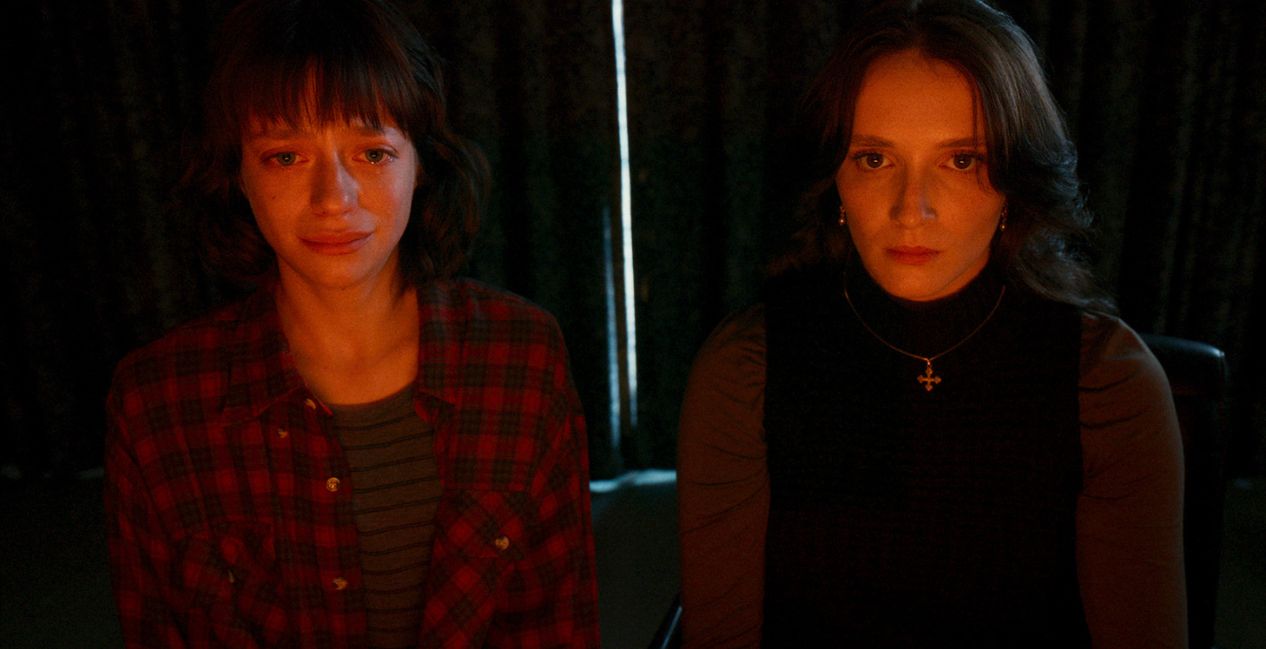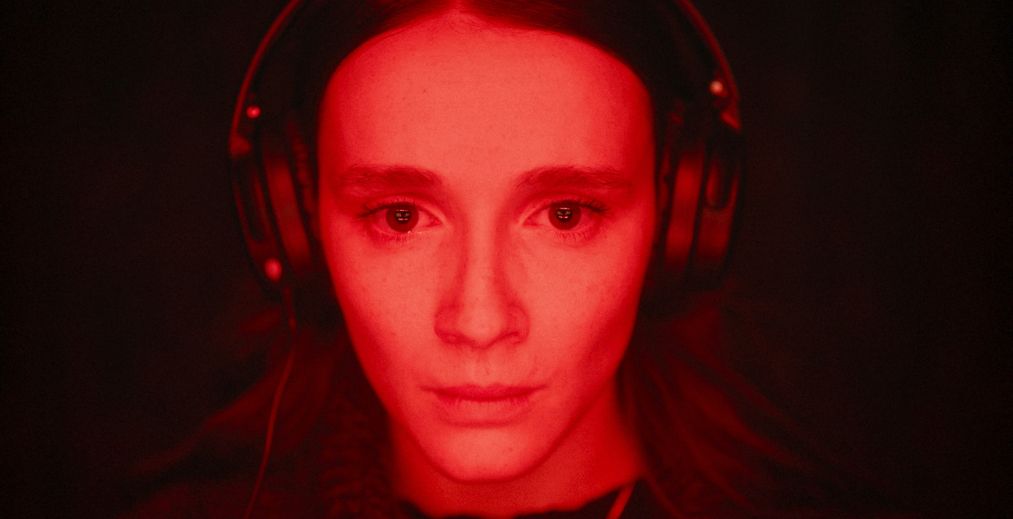True crime remains a fascination in global culture. No matter how grisly or salacious the crime is, there’s an audience to hoover up all the nasty details. Podcasts, documentaries, and entire websites are only a few ways sensationalist recounting of the supposedly unspeakable are distributed. With the rise of true crime comes the question of what consuming this kind of content around the clock does to our brains. Most things are fine in moderation, but Red Rooms posits the worst-case scenario. Written and directed by Quebecois filmmaker Pascal Plante, Red Rooms is a harrowing thriller that centers on the moral rot that can accompany going down the true crime rabbit hole.
In the stale air of a Montreal courtroom, Ludovic Chevalier (Maxwell McCabe-Lokos) stands accused of murdering three young girls and live-streaming it onto the dark web. The tall, bald man doesn’t say a word as the prosecution lays out the severity of his crimes to the jury to the occasional objection from the defense—Plante wisely front loads Red Rooms with the facts and accusations of the case. Through only words, we’re given a disturbing picture to paint ourselves. Then, Red Rooms turns the attention to someone else in the courtroom: the people there to watch.
Juliette Gariépy plays Kelly-Anne, a fashion model with no clear motive to be watching the trial other than a public spectacle. Gariépy keeps Kelly-Anne a cipher for around two-thirds of the runtime. She’s as cold as the sterile spaces she inhabits. This is emphasized in blue and fluorescent white tones by cinematographer Vincent Biron, giving off the disconcertingly clean, slick look of something like David Fincher’s The Girl With the Dragon Tattoo or The Killer.
Kelly-Anne talks in a monotone and lets out only bits of information about herself, such as her income coming from online gambling. She seems to be watching or perceiving everything around her at every moment. Because of her quiet, elusive dignity, you don’t question her being at the trial at all.
Clementine (Laurie Babin), on the other hand, is a walking red flag. Thanks to the manic energy of Babin’s performance, Clementine is a glorified fan girl for the accused, believing him to be innocent of all charges. Perhaps she’s even somewhat in love with him.

Kelly-Anne and Clementine strike up an odd friendship built on their mutual interest in the trial. However, Clementine starts to become uncomfortable when she hears more details of the killings, eventually being disgusted with what she has aligned with, while Kelly-Anne leans in even more. And that’s when Red Rooms really starts cooking.
As a character, Kelly-Anne is a lightning rod for everything Plante wants to say with Red Rooms. She falls further and further into the obsession with the case. The once barely noticeable score by composer Dominique Plante becomes more prominent. Kelly-Anne begins to lose opportunities because she is obsessed with the case. Gariépy slowly introduces a wild look behind Kelly-Anne’s eyes.
This hunger doesn’t fade even as she has gone so far as to dress up as one of the victims in court to elicit a reaction from the mother, which loses Kelly-Anne absolutely everything. As a character study of someone ruled by their compulsion, Red Rooms remains engrossing.
It’s the climax of Red Rooms that transforms it from just being a good film to mandatory viewing. Without spoiling, Kelly-Anne goes into the dark web to find missing evidence. Her journey into the drudges of the internet is not only the most accurate depiction of TOR (The Onion Router) browsers seen in mainstream film.
It’s also a ghastly depiction of a woman who goes so far into her obsession that she starts to become one of the miscreants that frequents this seedy underbelly. As she gets closer and closer to the truth, Red Rooms pulls the clever trick of making us get invested in Kelly-Anne’s search, celebrating her “victories” with her. That is until the bottom drops out.
Red Rooms ends with the subtlety of shoving a mirror directly into the audience’s face. It’s an uncomfortable feeling, one that is initially tough to sit with but becomes the entire film’s mantra. Red Rooms is a gutting, slick, surprising take on true crime that makes its audience rampant with one of the defining cultural obsessions of the modern era. It’s a monster transformation in slow motion, one that is all the more sickening because we’re the ones who bring ourselves to that point out of our selfish need to insert ourselves into the macabre.
Red Rooms is now playing in New York City, with more dates to come.
Red Rooms
-
Rating - 9.5/109.5/10
TL;DR
Red Rooms is a gutting, slick, surprising take on true crime that makes its audience rampant with one of the defining cultural obsessions of the modern era.







